Written by:
Shideh Majidi, MD
Assistant Professor, Pediatric Endocrinology
 It is very common for people who don’t have type 1 diabetes to confuse type 1 (T1D) with type 2 diabetes (T2D). Adults (and occasionally teenagers) can be diagnosed with T2D when in fact they have T1D. So what is the difference between the two and how can someone tell if they may have been misdiagnosed?
It is very common for people who don’t have type 1 diabetes to confuse type 1 (T1D) with type 2 diabetes (T2D). Adults (and occasionally teenagers) can be diagnosed with T2D when in fact they have T1D. So what is the difference between the two and how can someone tell if they may have been misdiagnosed?
T1D is an absolute deficiency of insulin due to an autoimmune process. The only treatment for someone with T1D is insulin via injections or an insulin pump. T2D is predominately due to insulin resistance. This means that the body is able to make insulin, but because it does not respond well to insulin (“insulin resistance”), it now needs more insulin than it can produce. Sometimes T2D can be treated with diet and exercise or oral medications, and sometimes it also needs to be treated with insulin. In both cases, people usually have symptoms of extreme thirst and needing to urinate a lot. However, it is much more common for someone with T1D to be severely ill at diagnosis than those with T2D, who often do not feel sick at diagnosis. Both T1D and T2D can run in families, but people with T2D are much more likely to have a relative with T2D. Most people with a new diagnosis of T1D have no known relative with the disease.
 Over 90% of children with diabetes have T1D, while the majority of adults with diabetes have T2D. However, T2D can be seen in children (most often in overweight or obese children after puberty has started) and T1D can occur in adults (often adults with T1D are leaner at diagnosis than those with T2D). In adults with T1D, it can sometimes take longer to lose the cells that make and release insulin (islet cells) compared to children, which can make it harder to distinguish between T1D and T2D.
Over 90% of children with diabetes have T1D, while the majority of adults with diabetes have T2D. However, T2D can be seen in children (most often in overweight or obese children after puberty has started) and T1D can occur in adults (often adults with T1D are leaner at diagnosis than those with T2D). In adults with T1D, it can sometimes take longer to lose the cells that make and release insulin (islet cells) compared to children, which can make it harder to distinguish between T1D and T2D.
When a child presents with diabetes, antibodies are often obtained and this, in addition to other clinical factors, are used to diagnose T1D versus T2D. If someone is misdiagnosed as T2D, they will notice that symptoms and blood sugars are not improving or are worsening on oral medications. They may continue to lose weight and will often become more and more ill until insulin is started. Children will notice this more rapidly than adults will. If there is any concern for misdiagnosis, it is important to talk with your doctor. Obtaining diabetes autoantibodies can help in determining whether someone has T1D.
Photos by Steele Style Shots





